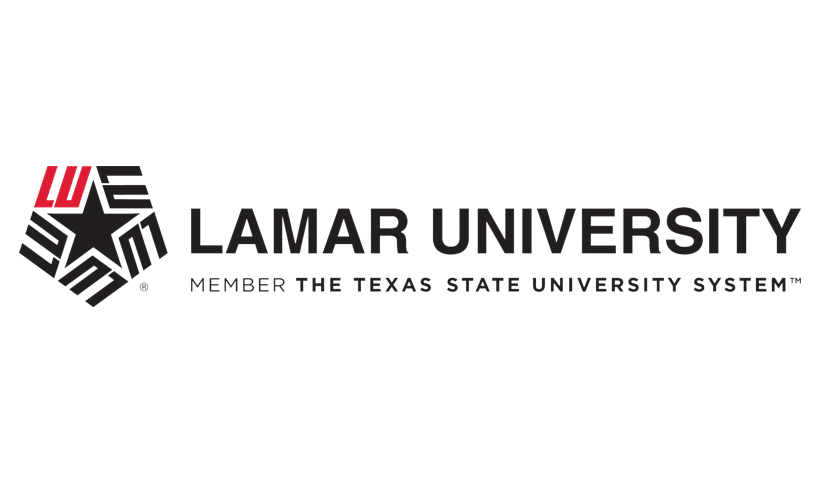As the Lone Star State’s population grows, so will its need for empathetic clinical, counseling, and school psychologists. The U.S. Bureau of Labor Statistics (BLS) reports a lower concentration of psychologists in Texas than the national average, which could mean an opportunity to start a career in this rewarding field.
The schools below all boast renowned programs, and each requires in-person coursework to meet the degree requirements. In most cases they are not terminal master’s programs, but rather award a master’s en route to the doctorate. Programs that offer remote learning and terminal master’s degrees have been noted.
 National University : Doctor of Philosophy in Psychology (Accredited. No GRE. Scholarships Available)
National University : Doctor of Philosophy in Psychology (Accredited. No GRE. Scholarships Available) The Chicago School : Ph.D. in Applied Behavior Analysis (Online Programs.)
The Chicago School : Ph.D. in Applied Behavior Analysis (Online Programs.) The Chicago School : Ph.D. in Counselor Education and Supervision (Online Programs.)
The Chicago School : Ph.D. in Counselor Education and Supervision (Online Programs.) Pepperdine University : Master of Arts in Psychology (No GRE required)
Pepperdine University : Master of Arts in Psychology (No GRE required) Purdue University Global : Masters in Psychology (100% Online)
Purdue University Global : Masters in Psychology (100% Online) Southern New Hampshire University (SNHU) : MS Psychology (Flexible. Affordable. And achievable.)
Southern New Hampshire University (SNHU) : MS Psychology (Flexible. Affordable. And achievable.) Southern New Hampshire University (SNHU) : MS Psychology with concentration in Child and Adolescent Developmental Psychology (Flexible. Affordable. And achievable.)
Southern New Hampshire University (SNHU) : MS Psychology with concentration in Child and Adolescent Developmental Psychology (Flexible. Affordable. And achievable.) Southern New Hampshire University (SNHU) : Online Psychology Degrees (Bachelors and Masters. Flexible. Affordable. And achievable.)
Southern New Hampshire University (SNHU) : Online Psychology Degrees (Bachelors and Masters. Flexible. Affordable. And achievable.) University of West Alabama : Online Bachelor of Psychology (Online Bachelor’s Degree Program)
University of West Alabama : Online Bachelor of Psychology (Online Bachelor’s Degree Program)Consider a Featured Online Counseling Program
| School and Program Information | Online Program? Entry Requirements | Course Information | |
|---|---|---|---|
|
National University
Doctor of Philosophy in Psychology
COAMFTE Accredited
|
✔ Online
GRE Scores Not Required
|
Earn a degree in Counseling Psychology, Gerontology, or Substance-Related and Addictive Disorder
|
Learn More |
|
The Chicago School
Ph.D. in Applied Behavior Analysis
Credential Track options are also available.
|
✔ Online
Master's Degree Required.
|
Prepare to learn the skills needed to bring about socially significant behavioral changes through evidence-based program development.
|
Learn More |
|
The Chicago School
Ph.D. in Counselor Education and Supervision
|
✔ Online
Master's Degree Required.
|
Prepares graduates to act as educators and leaders in the field of counseling.
|
Learn More |
|
Pepperdine University
Master of Arts in Psychology
Open to all undergrad majors
|
✔ Online
No GRE Required
|
Pepperdine University’s online Master of Arts in Psychology program is open to all undergrad majors and can be completed in about 18 months.
|
Learn More |
|
Purdue University Global
Masters in Psychology
HLC Accredited
|
✔ Online
|
Advance your expertise and career studying behavior approaches, neuropsychological perspectives, issues in psychopathology, and cognitive psychology.
|
Learn More |
|
Southern New Hampshire University (SNHU)
MS Psychology
NECHE Accredited
|
✔ Online
No application fee or GRE/GMAT scores required
|
Optional concentrations in child and adolescent development psychology, forensic psychology, or industrial organizational psychology.
|
Learn More |
|
Southern New Hampshire University (SNHU)
MS Psychology with concentration in Child and Adolescent Developmental Psychology
NECHE Accredited
|
✔ Online
No application fee or GRE/GMAT scores required
|
Develop assessment, evaluation and treatment strategies that address the unique individual, cultural and psychological needs of children and families.
|
Learn More |
|
Southern New Hampshire University (SNHU)
Online Psychology Degrees
Bachelors and Masters NECHE Accredited
|
✔ Online
No application fee or GRE/GMAT scores required
|
With our unique programs - from child and adolescent development to forensic psychology - you'll be prepared for a wide variety of careers.
|
Learn More |
|
University of West Alabama
Online Bachelor of Psychology
|
✔ Online
|
Bachelor of Psychology is an online undergraduate program with a flexible online environment.
|
Learn More |
*Sponsored Counseling Programs
For detailed degree information, view the guides to:
Online CACREP Accredited programs | Online MPCAC Accredited programs
 National University - Doctor of Philosophy in Psychology (COAMFTE Accredited)
National University - Doctor of Philosophy in Psychology (COAMFTE Accredited)
 The Chicago School - Ph.D. in Applied Behavior Analysis (WASC and WSCUC Accredited)
The Chicago School - Ph.D. in Applied Behavior Analysis (WASC and WSCUC Accredited)
 The Chicago School - Ph.D. in Counselor Education and Supervision (WASC and WSCUC Accredited)
The Chicago School - Ph.D. in Counselor Education and Supervision (WASC and WSCUC Accredited)
 Pepperdine University - Master of Arts in Psychology (ABAI Accredited)
Pepperdine University - Master of Arts in Psychology (ABAI Accredited)
 Purdue University Global - Masters in Psychology (HLC Accredited)
Purdue University Global - Masters in Psychology (HLC Accredited)
 Southern New Hampshire University (SNHU) - MS Psychology (NECHE Accredited)
Southern New Hampshire University (SNHU) - MS Psychology (NECHE Accredited)
 Southern New Hampshire University (SNHU) - Online Psychology Degrees (NECHE Accredited)
Southern New Hampshire University (SNHU) - Online Psychology Degrees (NECHE Accredited)
 University of West Alabama - Online Bachelor of Psychology (SACSCC Accredited)
University of West Alabama - Online Bachelor of Psychology (SACSCC Accredited)
Psychology Degree Programs in Texas
University of Texas, Austin
The University of Texas at Austin does not offer online psychology courses. Their undergraduate psychology courses ground students’ learning in historical and contemporary human and animal behavior research. Students learn to relate psychological principles to everyday living by thinking critically and creatively about human behavior across gender, culture, and age. Undergraduate students also receive training in experimental design and statistics. They should expect to evaluate research findings and complete written and oral presentations.
Undergraduate students can pursue a Bachelor of Arts in Psychology or a Bachelor of Science. A B.A. in Psychology is the better option for students who do not plan to continue to medical school or enter a professional health field. It allows for more elective courses than the B.S. and requires intermediate proficiency in one foreign language.
The B.S. in Psychology requires 25 hours of prescribed natural science and math courses taken at the natural science majors level, including calculus. A strong background in math and a keen interest in science is required.
Graduate studies prepare students for academic or other scientific careers in research and teaching. Most students enter the program with only a bachelor’s degree. Some earn a master’s degree while progressing to the doctorate, but it is not required, as only students who wish to earn a doctorate are admitted. The length of time necessary to complete the Ph.D. program varies across specializations. Most students should expect to spend between four to six years completing postgraduate studies.
Texas A&M University
Texas A&M University psychology majors undertake rigorous coursework and training that equips them with the ability to use scientific methods to understand and answer questions about human behavior. Psychology majors can pursue either a Bachelor of Arts or a Bachelor of Science degree. The B.A. is a good choice for students interested in employment in business or applied psychology and graduate and professional programs that stress a humanities background. The B.S. is a better alignment for students interested in a science- or health-oriented psychology graduate program such as neuroscience, medical school, pharmacy, and more.
Texas A&M University also offers five doctoral degree programs and one terminal master’s degree program. Some programs award a Master’s as part of the path to a Ph.D. Broadly, the programs prepare students for the rigors of research: conducting high-quality studies, directing the research of others, and reporting findings. TAMU graduate students receive a fellowship or assistantship for the entire study period, typically four to five years.
Texas Tech
Texas Tech offers a Bachelor of Arts degree in Psychology for undergrads. The school strongly recommends participation in undergraduate research starting early in a student’s academic career to gain knowledge on research design and statistics.
Research work should begin no later than a student’s junior year and ideally as early as their sophomore year. Students also pursue internships during their junior and senior years. The school believes this is an essential experience. TTU does not offer a B.S. in Psychology, but the school is developing one.
For graduate students, the TTU Psychological Services Department offers a Ph.D. in:
- Clinical Psychology
- Counseling Psychology
- Cognition and Cognitive Neuroscience
- Human Factors Psychology
- Social Psychology
The Clinical Psychology, Counseling Psychology, and Human Factors programs are all nationally-accredited. The graduate department also has a functioning psychology clinic that provides psychotherapy and assessment services to the University, Lubbock, and neighboring communities.
TTU’s College of Education also offers two hybrid/blended psychology courses; a Master of Education in Educational Psychology and a Doctor of Educational Psychology.
Rice University
Rice University’s B.A. Degree with a Major in Psychology is one of their most popular undergraduate programs. Students who pursue this major will be able to draw from a broad knowledge base in psychology to describe key concepts, principles, and overarching themes in the field. Research is a crucial component of learning at Rice, and students will graduate with practical research experience and an understanding of the different research methods psychologists use. They will also:
- Design and conduct scientific studies that follow the APA Ethics Code
- Collect, interpret, and report on psychological research
- Be able to describe major areas and emerging applied areas of psychology
- Identify appropriate applications of psychology in solving problems
- Articulate how psychological principles can explain social issues
Rice University’s MA and Ph.D. psychology programs are geared toward students pursuing university-level teaching and research or applying their degrees in related career fields. At Rice, faculty and graduate students work in collaborative Research Interest Groups (RIGs) that allow for tailor-made programs based on shared research interests. The RIG experience also functions as a mentorship program, building relationships that last well beyond graduation.
Rice University does not offer doctoral or master’s programs in clinical, counseling, educational, school, forensic, or sports psychology. In addition, the school only offers master’s degrees when one is obtained en route to a doctoral degree or when students enroll in the Human-Computer Interaction & Human Factors and Industrial-Organizational Psychology degree programs. Rice University does not offer any online Psychology degrees.
Baylor University
At Baylor, undergraduates can pursue three psychology degrees:
- Bachelor of Arts (B.A.) in Psychology
- Bachelor of Science (B.S.) in Psychology
- Bachelor of Science (B.S.) in Neuroscience
As with other schools, the B.A. in Psychology emphasizes humanities, while the B.S. in Psychology emphasizes science and mathematics. Baylor encourages students who will not pursue further Psychology education to choose a track based on their interests, stating that “most careers are equally accessible with the B.A. or the B.S.” Approximately 80-85% of Baylor psychology majors pursue a B.A.
Baylor does not admit students directly to its undergraduate Psychology program. Instead, first-year students enter as “Pre-PSY majors.” They must complete several courses with a grade of C or better and maintain a minimum overall GPA of 2.25 in no fewer than 40 hours completed at Baylor (B.S. degree students must maintain a 2.75 GPA).
Baylor offers a Psy.D. in Clinical Psychology and Ph.D. in Psychology for graduate students. The APA-accredited Psy.D. degree integrates formal coursework with practicum and research experiences. Meanwhile, the Ph.D. program features three tracks: Behavioral Neuroscience, Social Psychology, and General Experimental Psychology. Each prepares students for university teaching and research as well as positions in universities, hospitals, industry, or government.
University of Houston
Like Baylor, the University of Houston admits first-year students as Pre-Psychology students. They must complete several designated prerequisite psychology courses and maintain a 2.0 GPA or higher before they are eligible to declare a Bachelor of Science (B.S.) or Bachelor of Arts (B.A.) in Psychology.
Psychology students at the University of Houston take courses in clinical, cognitive, developmental, industrial/organizational, and social psychology, as well as neuropsychology. Undergraduate studies prepare students for careers and further study with a broad-based liberal arts foundation instead of narrow technical training. The psychology major also prepares students for continuing studies in law, medicine, psychology, social work, public health administration, and more.
While the University of Houston offers several online psychology courses, the undergraduate degree is not attainable online because students must complete many lower-level courses required for the degree in person. Once the requisite coursework is complete, students can apply to finish their Psychology major online.
The University of Houston’s Department of Psychology offers Ph.D. programs in Clinical, Developmental Cognitive Neuroscience, Industrial/Organizational, and Social Psychology. Like other schools, there is no terminal Master’s program, though Ph.D. students will earn a Master’s in pursuit of their doctorate.
The University of Houston’s graduate studies focus on traditional psychological theory and methods while encouraging students to commit to putting their education to work solving societal problems, sponsoring practicum and internships with major corporations and public and private health facilities.
Texas Christian University
There are no special admissions requirements for undergraduates who wish to study psychology at TCU. The school offers a B.A. with a Major in Psychology and a B.S. with a major in psychology. The school recommends the B.A. for students who do not plan a career in psychology or a psychology-related field but still have a general interest in psychology. TCU recommends the B.S. for students who will pursue graduate-level psychology work and employment in psychology or related fields.
For graduate students, the TCU Department of Psychology offers a Master of Science and Doctor of Philosophy in Experimental Psychology and a Master of Science in Developmental Trauma.
The Ph.D. program equips students with competence in psychological research. During their tenure in the graduate program, students are expected to develop expertise in a major research area, working closely with graduate faculty in empirical research. They’ll also contribute to publications and paper presentations.
TCU faculty actively engage with research in traditional psychological areas. They also study neuroimmunology, attitude formation and change, evolutionary psychology, comparative animal learning, applied behavior analysis, ethical decision-making, terror management, and human development.
The department also provides graduate students opportunities to lecture and lead discussions in undergraduate classes. Advanced graduate students may hold sole responsibility for teaching undergraduate courses.
Psychologist Salaries in Texas
The Economic Research Institute offers annual median wage data for several types of psychologist roles in Texas.
- Clinical Psychologists: About $97,000
- School Psychologists: About $85,200
- Counseling Psychologists: About $95,700
- Forensic Psychologists: About $41,100
How to Become a Licensed Psychologist in Texas
The Texas State Board of Examiners of Psychologists (TSBEP) establishes and maintains the qualifications for licensure and renewal of psychologists, psychological associates, and licensed specialists in school psychology in Texas.
Applicants for licensure must submit their materials to the Texas Behavioral Health Executive Council (TBHEC), which oversees the approval process. All applications must be completed and submitted through their web portal.
Texas Administrative Code 22 TAC 463.10 details the requirements for obtaining licensure as a psychologist in Texas. Generally speaking, an applicant must:
- Hold a doctoral degree in psychology. Per Texas state code, applicants must hold a doctoral degree in psychology from a college or university accredited by a regional accrediting organization recognized by the Council for Higher Education Accreditation, the Texas Higher Education Coordinating Board, or the United States Department of Education.
- Pass the Examination for Professional Practice in Psychology (EPPP). Per Texas state code, all applicants for licensure as a psychological associate or psychologist must pass the EPPP before the Council grants a license. An applicant who has taken the EPPP either in the past or in another jurisdiction will not be required to retake the exam provided the applicant’s score satisfies the Council’s current minimum acceptable score for licensure.
- Pass the Jurisprudence Examination. All applicants for licensure must pass the Jurisprudence Examination before the Council grants a license. The Jurisprudence Examination is an online, open-book test that covers the Psychologists’ Licensing Act, Council rules, and other applicable laws. It’s intended to help assess how well a candidate knows the laws governing the practice of psychology. Applicants must take the test no more than six months before they submit their licensure application to the Council. Per Texas code, the minimum acceptable score for the Jurisprudence Examination for all applicants is ninety percent (90%).
- Complete a minimum of 1,750 hours of supervised experience received in a formal internship within a doctoral program.
- Complete a minimum of 1,750 hours of supervised experience after a doctoral degree’s conferral. Per TBHEC, applicants who graduated from an APA or CPA-accredited degree program (or a substantially equivalent degree program) may be able to count specific experiences acquired in their doctoral program toward this requirement.
It’s important to note that the requirement for documentation of supervised experience is waived for actively-licensed doctoral-level psychologists in good standing who:
- Have been practicing psychology in another jurisdiction for at least five years, or
- Can affirm they have received at least 3,000 hours of supervised experience from a licensed psychologist in another jurisdiction. Applicants must have completed at least half within a formal internship, with the remaining half completed after the conferral of the doctoral degree.
In addition, per TBHEC, individuals who hold an active Certificate of Professional Qualification in Psychology (CPQ) are considered to have met all requirements for licensure, except for passing the Jurisprudence Examination.
Job Outlook for Psychologists in Texas
The job outlook for psychologists in Texas is generally favorable.
According to the BLS, there are just over half as many Clinical and Counseling Psychologists working in Texas as the national average. For comparison, California, New York, and Illinois each have higher concentrations of Clinical and Counseling Psychologists, with Illinois having the highest concentration by far. The statistics for general Psychologists are very similar, with Texas having a nearly one-third lower concentration of these psychologists than the national average. This could indicate a need for psychologists in both disciplines, especially given the increasing awareness of and willingness to treat mental health issues.
Meanwhile, the BLS reports just under 6,700 School Psychologists working in Texas, a higher concentration than the national average. This could be due to Texas’ growing population and a general need for more School Psychologists than average to serve densely-packed urban areas, especially given the expanding role of psychology in education. For comparison, there is a greater concentration of School Psychologists working in Texas than in California but a lesser concentration than in Illinois or New York.
Additional Counseling or Psychology Degree Options in Texas
Sources
https://liberalarts.utexas.edu/psychology/undergraduate-program/degree
https://liberalarts.utexas.edu/psychology/undergraduate-program
https://liberalarts.utexas.edu/psychology/graduate-program
https://liberalarts.tamu.edu/psychology/2019/10/11/psychology-graduate-programs-at-texas-am
https://www.depts.ttu.edu/psy/about
https://www.depts.ttu.edu/elearning/programs/masters
https://www.depts.ttu.edu/elearning/programs/doctoral
https://www.depts.ttu.edu/psy/advising/majors.php
https://www.depts.ttu.edu/psy/advising/courses.php
https://psychology.rice.edu/graduate
https://psychology.rice.edu/undergraduate/group/major-requirements
https://psychologyneuroscience.artsandsciences.baylor.edu
https://www.uh.edu/class/psychology/undergraduate/Distance%20Education
http://publications.uh.edu/preview_entity.php?catoid=36&ent_oid=2771
http://publications.uh.edu/preview_program.php?catoid=36&poid=12952
http://publications.uh.edu/preview_program.php?catoid=36&poid=12953
https://www.uh.edu/class/psychology/graduate
https://cse.tcu.edu/psychology/graduate/index.php
https://www.tcu.edu/academics/programs/psychology.ph
https://www.erieri.com/salary/job/school-psychologist/united-states/texas
https://www.erieri.com/salary/job/forensic-psychologist/united-states/texas
https://www.erieri.com/salary/job/counseling-psychologist/united-states/texas



